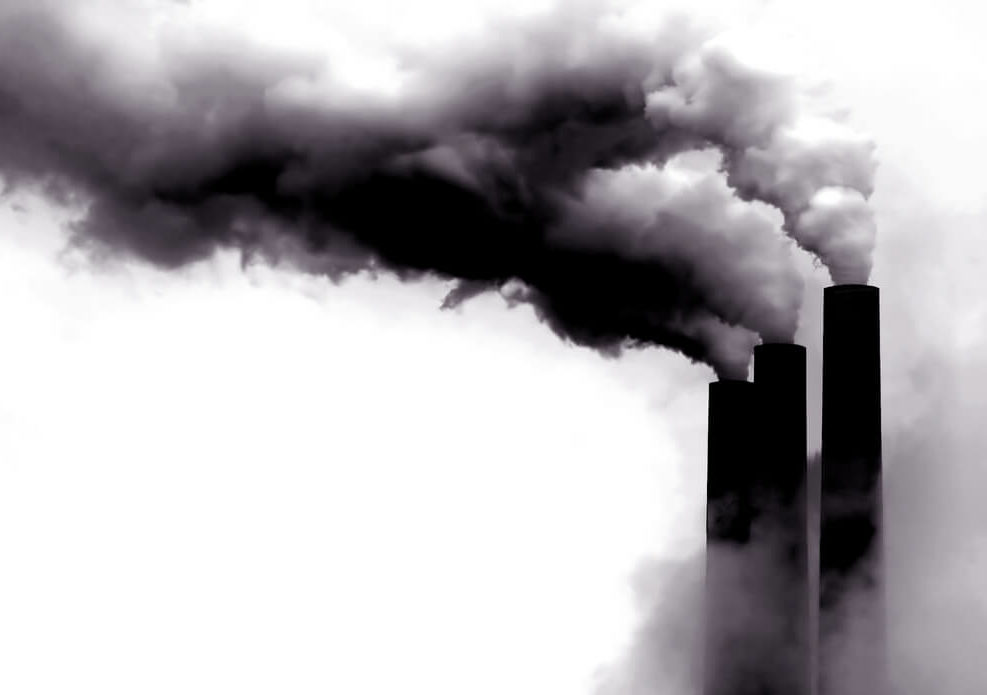

The Supreme Court on Tuesday found Graphite India Limited to be a polluter and has directed the company under Principle “Polluter Pays” to pay a compensation to the residents of Whitefield in Bengaluru, Karnataka for violating pollution norms and causing degradation in air quality in the area.
The apex court also questioned the company on how much they are willing to pay the residents as compensation. While GIL pleaded that it was abiding with all environmental and pollution norms, the bench called the company for its past pollution. The bench of Justices Madan B Lokur and Deepak Gupta, asked senior advocate Shyam Divan, appearing for GIL, “Our question is how much will you pay for the pollution caused? Our question was not about your closure.”
To which, Divan said that he would take instructions on the query about how much they would pay as per ‘polluter pays” principle. The bench asked him to take instructions on this issue and come with an answer in the next date for the hearing set for Monday, October 29.
Srinivas Kotni, part of the advocate (LEXport) team representing Whitefield Rising in the matter said, “We showed the court the photographs and leaves evidencing high levels of pollution. On seeing the evidence the court feels that there has been gross pollution and therefore under the principle “polluter pays” the court intends to impose costs and penalty on GIL. Karnataka State Pollution Control Board has filed their report. GIL’s counsel wanted to restrict the matter only to imports of pet coke which the court refused in view of EPCA report, its order of 9th October and our arguments.”
The question of how much the company will pay, as per the law, is going to be an interesting one. Because, on the face of it, the company has gained tremendously as a polluter. Not only is this visible in a stock price that is up over 100% in the past year, but also in the profitability improvements the firm has shown. Interestingly, one of the reasons for the rise in stock price has been the closure of competitors in China, on, you guessed it, pollution-related reasons. That itself tells a story, of perceived ‘ease of polluting’ in India versus the rest of the world apparently.
According to the residents, the Karnataka State Pollution Control Board (KSPCB) has been receiving complaints about the factory since 1980. Since then, the company has not only been asked several times to furnish reports on how they plan to curb the pollution they are causing but to also fix their sheds and machinery. A survey of the factory was finally conducted on 19 September after Sunita Narain, Director General of the Centre for Science and Environment and a member of the Environment Pollution (Prevention & Control) Authority (EPCA), directed the KSPCB to do so. The survey found that Graphite India had not complied with the requisite air pollution norms and was denied consent for operation.
In a BSE filing in response to KSPCB’s survey, Graphite India stated that it has “always been a law-abiding entity and gives utmost importance towards statutory compliances including environmental matters.”
The graphite factory was set up in Whitefield in the outskirts of Bengaluru in the 1970s. The area has now developed into a populated residential and commercial hub. The residents of Whitefield have been complaining about the black soot released by the factory for over two decades now. Every surface in the area has been constantly covered in graphite matter released from the factory, residents have complained of developing chronic health issues due to severe lung impact.
“The company has been projecting only Ambient emissions (measured at chimneys and stacks) and simply ignores fugitive emissions (escaping through roof etc). If fugitive emissions are measured the unit being a red category industry just cannot survive in Whitefield (Yellow Category). As it can never be environmentally compliant with the existing technology,” Kotni told iamrenew.
The court also pulled up the Karnataka State Pollution Control Board (KSPCB) for “doing nothing” to curb pollution in Bengaluru even as the city was grappling with the problem.
“Have you been to Bengaluru? There is so much pollution there. What the Karnataka State Pollution Control Board is doing? You are just wasting Bengaluru city. You are doing nothing,” the bench told the counsel appearing for the KSPCB.
In a significant move toward advancing green energy and industrial growth in the state, Himachal…
Golabl chemical conglomerate BASF has announced that its now offering the world’s first biomass-balanced polyethersulfone…
In a crucial stint to bolster the biogas sector and sustainable dairying in the country,…
TotalEnergies SE has received approval to proceed with its Middlebrook solar and battery project in…
Andhra Pradesh Chief Minister Chandrababu Naidu has inaugurated the Rs 1,000-crore green hydrogen plant of…
The BITS Pilani has developed an innovative solution for managing landfill leachate, domestic septage, and…